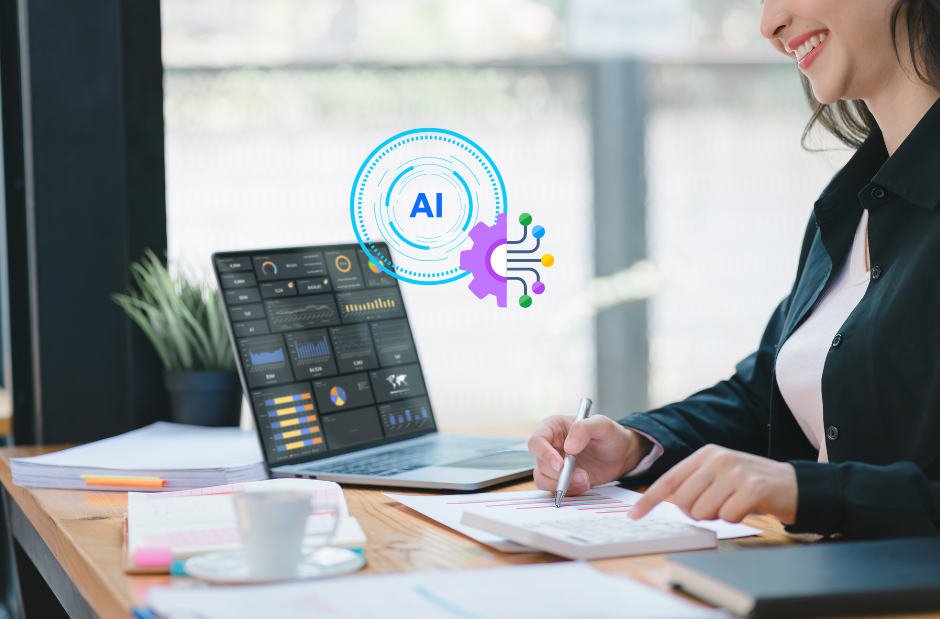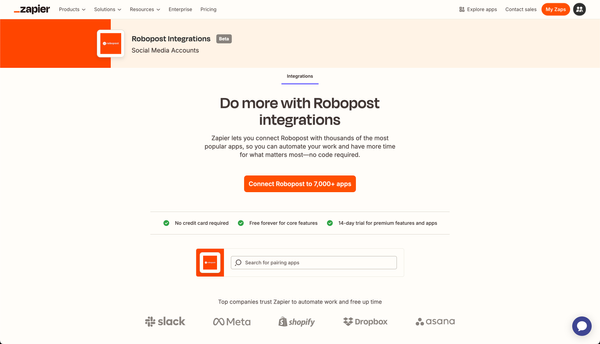The Future of Social Media: Predictions on AI and Automation Integration
Explore the integration of AI and automation in social media, focusing on trends, strategies, and ethical considerations for future marketing.

Combining Artificial Intelligence (AI) and automation with social media is changing the digital world. In the future, these technologies will likely transform how brands connect with consumers, making interactions more personalized and engaging. This article explores the latest trends, how these technologies are being integrated, and how AI's role in social media is evolving, giving a preview of what to expect in the years ahead.
Key Takeaways
- AI in social media will aim to keep interactions feeling genuine, helping brands and users connect more deeply.
- Using AI responsibly is important to keep trust and authenticity in brand communications.
- AI will become more important in creating content, monitoring social media, and managing ads.
- Predictive analytics and AI insights will be key in shaping future marketing strategies and operations.
Emerging Trends in AI and Social Media
Authentic Human Interactions
On social media, real human connections are becoming more important. As AI technology improves, it’s being used to create genuine interactions instead of just superficial ones. This change is driven by what consumers want: meaningful and trustworthy connections.
Personalized Brand Experiences
AI is changing how brands connect with their audiences by offering highly personalized experiences. By analyzing data and using predictions, AI can customize content, recommendations, and ads to fit each user’s preferences, making interactions more engaging and satisfying.
Responsible AI Usage
Using AI in social media requires doing it responsibly. This means being transparent, fair, and accountable in how AI is used. Companies are becoming more aware of potential biases in AI systems and are working to address these issues with better practices and guidelines.
As AI becomes more integrated into social media, it’s crucial to develop responsible AI practices that protect user privacy and ensure fairness.
Integrating AI Tools into Social Media Strategies
Content Creation and Optimization
AI tools are changing how content is made and improved on social media. With AI, brands can create engaging and relevant content more easily, making sure it connects with their target audience. Tools like Robopost provide AI content generation alongside post scheduling features.
Social Media Monitoring
AI tools in social media monitoring help track brand mentions, analyze sentiment, and spot trends in real-time. This allows businesses to quickly respond to customer feedback and adjust their strategies. AI makes it easier to handle large amounts of data, highlighting important issues and opportunities.
Advertisement Management
AI is changing how ads are managed by automating and improving ad placements and targeting. Advanced algorithms let AI predict user behavior and preferences, leading to more accurate ad targeting. This boosts the effectiveness of campaigns and improves return on investment. Using AI for social media ads ensures that businesses reach the right audience at the right time.
The Impact of Increased Automation in Social Media
Personalized Online Experiences
Automation in social media is making online experiences more personalized. By using data analytics and machine learning, platforms can customize content, ads, and interactions based on individual preferences and behaviors. This makes the content more relevant and increases user engagement.
Enhanced User Support
Automation is changing how customer support works on social media. Automated responses, chatbots, and AI help centers are now common, giving users faster and more efficient support. This improves user satisfaction and reduces the burden on human support teams.
Improved Analytics
Advanced automation tools are giving social media platforms better insights into user data. These improved analytics help businesses understand consumer behavior more accurately, allowing them to make better decisions about their marketing strategies. Sophisticated algorithms and data processing tools have greatly enhanced the accuracy and usefulness of social media analytics.
The Expanding Influence of AI and Data in Social Media
Market Growth Predictions
The global market for artificial intelligence in social media was worth $2.68 billion in 2022 and is expected to grow to $27.67 billion by 2032. This represents a significant annual growth rate of 28%. This increase shows how much more businesses are relying on AI to improve social media features and user engagement.
Enhancing Online Experiences
AI and big data are now actively changing our online experiences. They make interactions on social media more interesting and engaging, which boosts user satisfaction and keeps people coming back.
Big Data Integration
Using big data in social media is changing how businesses understand and connect with their audiences. By analyzing large amounts of data, companies can create highly personalized content and ads, making their marketing more effective and improving customer relationships.
Future Challenges and Opportunities in AI-Driven Social Media
Balancing Automation with Authenticity
As social media evolves, it’s important to keep real human interactions even though automation is increasing. AI tools can boost user engagement, but we need to make sure we don’t lose the personal touch that creates real connections.
Navigating Ethical Dilemmas
Using AI in social media raises important ethical issues. It’s crucial to use AI responsibly, respecting user privacy and avoiding biases, to keep trust and credibility.
Exploiting New Marketing Avenues
AI offers new opportunities for marketing through advanced data analysis and targeted strategies. To make the most of these opportunities, businesses need to be creative and stay ahead of the competition.
Conclusion
Using AI and automation seems both unavoidable and necessary for improving user engagement and efficiency. The challenge is to keep real human interactions while more things become automated. Brands will need to use advanced AI tools without losing the personal touch that makes connections genuine. The future of social media will depend on how well these technologies are blended while still keeping the human element that users appreciate. This careful approach will be important for brands that want to build trust and create meaningful relationships in a more digital world.
